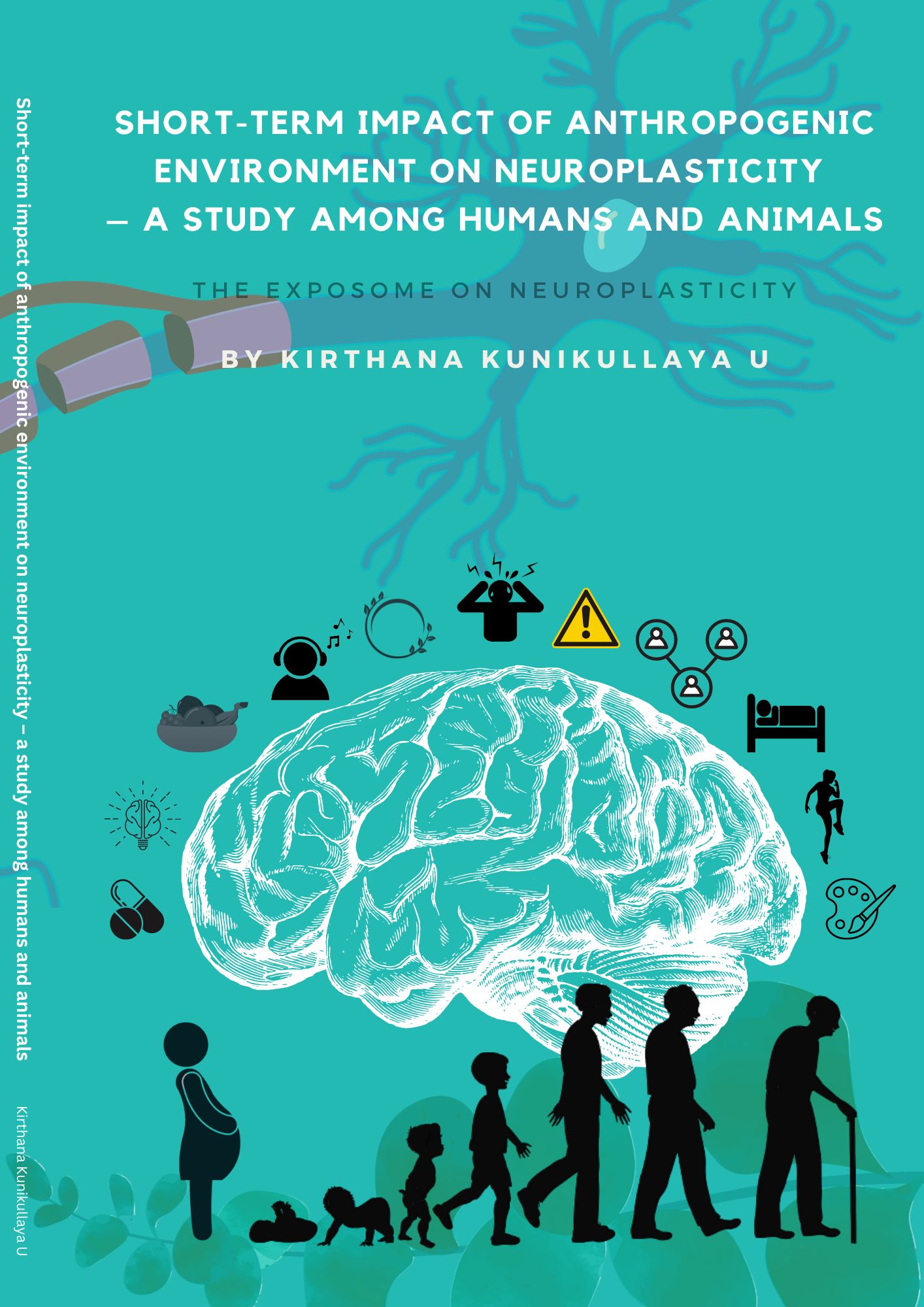PhD conferral Kirthana Kunikullaya U
Supervisors: Prof. Dr. Harry W. M. Steinbusch (Maastricht University), Prof. Dr. Thierry D. Charlier, (University of Rennes, Rennes, France)
Co-supervisor: Dr. Jodi L Pawluski (University of Rennes, Rennes, France)
Keywords: neuroplasticity, exposome, music, neonicotinoïd
"Short-term impact of anthropogenic environment on neuroplasticity – a study among humans and animals"
This research deals with the impact of human exposures through the lifetime on one’s neuroplasticity, the ability of the brain to mold. The exposure includes exposure to air, water, sound, chemicals, and drugs, as well as the lifestyle of the person (sleep, diet, physical activity, social interaction, cognitive enrichment). These exposures are collectively called: exposome. For this research, the focus was on the influence of music and an insecticide called thiacloprid.
The study was conducted among humans and animals respectively. The main findings are that exposure to music by listening to specific modes of music (musical scales) had a positive neuroplastic influence, reducing anxiety and having unique effects on the autonomic and central nervous systems. In contrast, exposure to an insecticide (thiacloprid) in pregnant mice impaired neuronal and hormonal gene expressions in the pups, thus negatively impacting neuroplasticity due to developmental exposure to the insecticide.
Language: English
Click here for the full dissertation.
Click here for the live stream.
